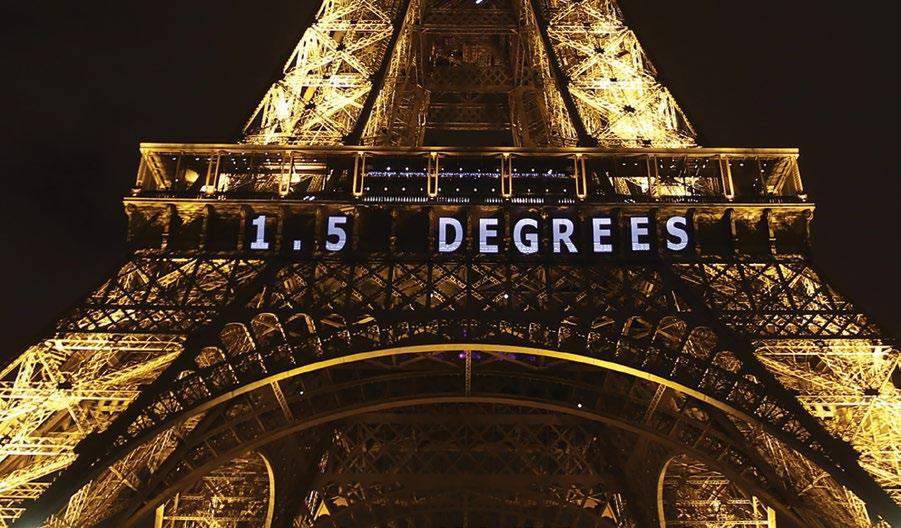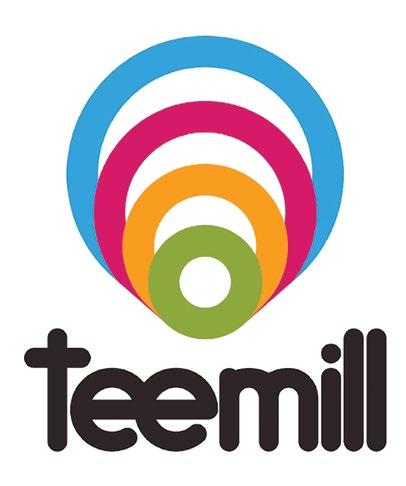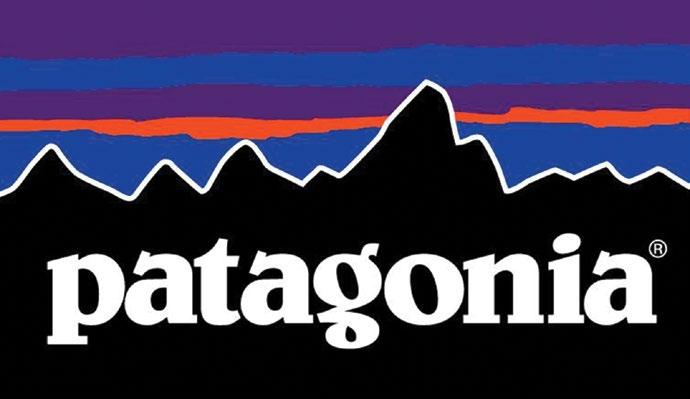
5 minute read
Sustainability - rethinking how to do business
Rethinking how we think about business...
Trudi Bishop Bee Licensing
trudi@beelicensing.com
... being ‘more good’ not ‘less bad’
2020 marks the fifth anniversary of the 2015 Paris Agreement when the 17 Sustainable Development Goals were created and agreed to work toward by a record number of global nations.
Yet five years in we are failing at almost all of them. There have been lots of promises but very little true action by governments and businesses around the world.
The target was to keep the earth within 1.5°C global temperature warming by 2030. It’s almost 2021 and we already sit at an average temperature rise of 1°C.
If the earth was a business and failing so spectacularly on these targets, heads would roll. But it’s not. We continue to treat our natural resources with such a level of contempt we are literally killing ourselves (or at least future generations). The earth will survive the climate crisis, but humanity will not. It really is time to act – but not with incremental change – we need transformative, systematic change.
What’s the effect from this temperature rise?
To name but a few; ice caps melting, warming oceans, more extreme weather, increased intensity of storms, more frequent flooding, more risk of diseases (such as Covid19), food and water shortages, extensive loss of biodiversity critical for the balance of the planet and all living beings, negative effects on our economies.
What’s the potential effect on business?
The poorest are usually the first and worst hit by the increases in disasters and disease. This vulnerable group of people are also often those who work in our factories on low wages, producing the goods to satisfy our insatiable appetite for “stuff”. If your workforce can’t get to work (or have been wiped out) because their home or your factory has been washed away in a storm surge or hurricane or they are struck down by a global pandemic, business becomes challenging to say the least. But that’s just the start. Increases in intense storms affect shipping too and therefore the delivery of raw materials and goods around the globe. Increased risk means increased insurance premiums. Business suffers at all levels.
When the bottom line is affected, CEO’s and shareholders tend to sit up and take notice. But it is the short term, continual growth, maximum profit for little cost that is costing our life on this planet. It is time to change our thinking. We run our businesses very much in the now or the very short-term future.
The licensing industry is no different. A multi-billion-dollar industry driven on maximising profit at every turn – we encourage over consumption to drive continual growth looking at new ways to slice the pie. Black Friday sales, (started by Amazon) the ultimate over
“The world will not evolve past its current state of crisis by using the same thinking that created the situation.” Albert Einstein

consumption marketing tool, was seen as a potential saviour for the negative effects of the pandemic. These sales encourage people to buy things they don’t need. Apparently, this is a good thing – according to a recent interview in another licensing publication, one licensing exec stated, “we want people to buy more, licensing creates a want – it’s not about need.”
However, when the amount of human made ‘stuff’ outweighs nature, (according to a recent study published by the BBC, 2020 is the year this happens), surely, it’s time to take stock and rethink how we do business.
Licensing is a dynamic, creative and fast paced industry. We pride ourselves on thinking outside the box when it comes to making brand connections never thought possible. We are also a very trend lead business.
As consumers demand more planet friendly products, sustainability and the appearance to be “green” is at risk of becoming just the latest wave for the licensing industry to ride. With this trend comes unintended consequences.
With the demand to appear green, marketing departments seem to go into overdrive. We see new collections in ‘natural’ looking or green packaging, labelled as ‘eco’, “green’, sustainable or recycled. The prices are often higher. But the truth (if we are honest with ourselves) is quite the opposite. We celebrate the collections made from downcycled plastic bottles; the alternatives to palm oil for our celebration cakes; products made from biodegradable plastic; bottled water in recycled plastic (rPET). We marvel at products being recyclable or coming in recycled/recyclable packaging. Patting ourselves on the back as we offset our carbon and pop another load of recycling at curb.

While these moves appear to be for the greater good and tick the shareholders and marketing boxes, we are only continuing on in the same destructive path – just more slowly.
It is time for our industry to put the brakes on and go quickly in the other direction. As Antonio Guterres stated in the Climate Ambition Summit, 2020, we need to “pass a credibility test … show ambition, stop the assault on the planet, do what we need to guarantee the future of our children and our grandchildren”.
For us to move in a less destructive direction, we need to turn how we think about sustainability and business on its head. Our current models are about aiming to be “less bad”. Isn’t it time we looked at being better – aiming to do “more good”?
If we downcycle the plastic bottle to be a t-shirt or a plush, we devalue the plastic bottle and push more microplastics into the ecosystem. “We choose to go to the Moon in this decade … not because it is easy, but because it is hard; because that goal will serve to organize and measure the best of our energies and skills, because that challenge is one that we are willing to accept, one we are unwilling to postpone, and one we intend to win ...” John F Kennedy.

When we do this, we are not thinking of the full value chain.
We have the opportunity to move toward stewardship when creating our licensing partnerships, working together to be better, to produce less and hold each other accountable. Companies like Patagonia, TeeMill, and H&M are embracing repairability, the circular economy (with truly sustainable materials) and products as a service bringing about a unique brand experience with positive results.
Looking ourselves in the mirror as an industry and seeing the environmental carnage we have contributed to and then change is a unique opportunity to show our dynamic industry in its best light. But it won’t be easy.
It is time for licensing’s ‘moon shot’ towards a truly sustainable future.











